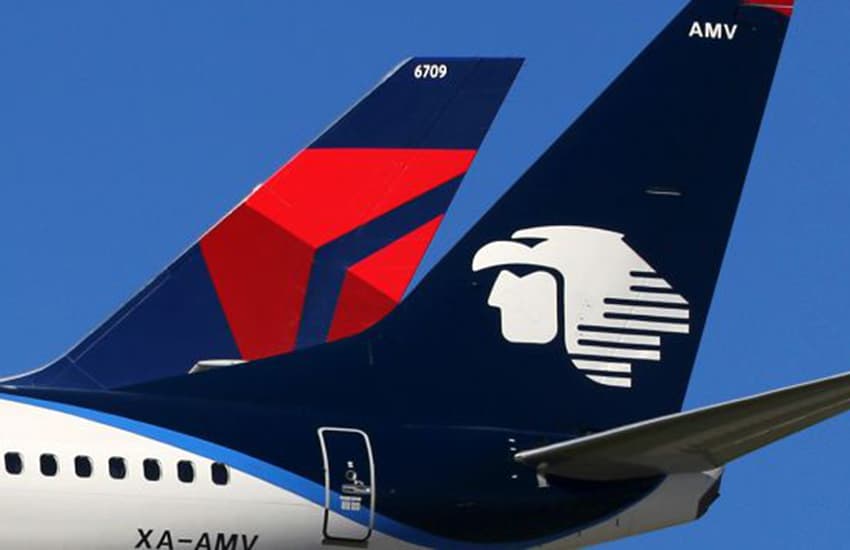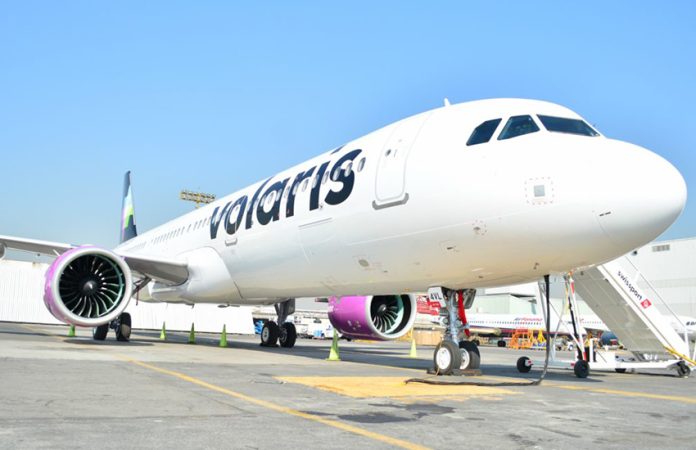The United States government downgraded Mexico’s aviation safety rating on Tuesday, a move that prevents Mexican airlines from adding new flights to the U.S.
The Federal Aviation Administration (FAA) said that it downgraded Mexico from Category 1 to Category 2 after finding that it doesn’t meet standards set by the International Civil Aviation Organization (ICAO), a specialized agency of the United Nations.
“The FAA identified several areas of noncompliance with minimum ICAO safety standards,” the aviation authority said in a statement.
“A Category 2 rating means that the country’s laws or regulations lack the necessary requirements to oversee the country’s air carriers in accordance with minimum international safety standards, or the civil aviation authority is lacking in one or more areas such as technical expertise, trained personnel, recordkeeping, inspection procedures, or resolution of safety concerns.”
The downgrade, which places Mexico in a group of countries that includes Bangladesh, Pakistan and Thailand, means that U.S. airlines will be barred from selling seats on flights operated by Mexican airlines. That will mainly affect Delta Air Lines, which has a codesharing agreement with Aeroméxico.

Delta president Glen Hauenstein stressed Tuesday that the downgrade was not a reflection of Aeroméxico’s safety standards.
“This is not about Aeroméxico. This is about the Mexican version of the FAA not having some of the right protocols in place,” he said at a conference.
Hauenstein said that there will be “very little impact for our customers booking through Delta,” although the airline might have to issue new tickets to people who bought Aeroméxico flights through it.
What the downgrade does do is “restrict Aeromexico’s ability to grow into the United States,” he said.
Other Mexican airlines such as Volaris will also be prevented from adding new flights to the U.S. at a time when the tourism industry is starting to recover from the pandemic-induced slump.
Hauenstein said that Delta will have to remove its codes on Aeroméxico flights as a result of the downgrade, but the Mexican carrier will be able to keep its codes on Delta flights.
Members of Delta’s loyalty program will still be able to receive SkyMiles on Aeroméxico flights that would normally carry the Delta code, the airline chief added.
The FAA said that it will increase its scrutiny of Mexican airline flights to the United States, but existing flights to the U.S. won’t be immediately affected.
“The FAA is fully committed to helping the Mexican aviation authority improve its safety oversight system to a level that meets ICAO standards. To achieve this, the FAA is ready to provide expertise and resources in support of the Agencia Federal de Aviación Civil’s (AFAC) ongoing efforts to resolve the issues identified in the International Aviation Safety Assessment (IASA) process,” the agency said.
“Both AFAC and FAA share a commitment to civil aviation safety. Sustained progress can help AFAC regain Category 1.”
According to one expert, Mexican aviation officials should attend air safety workshops to stay up to date with changes in the aviation sector. That could help Mexico to be better prepared for international air safety audits such as that carried out by the FAA, said Heriberto Salazar Eguiluz, president of the Pilots College of Mexico.
Speaking at a recent transport forum, Salazar said that Mexico is no longer a regional leader in the aviation sector and is now completely reactive to changes in the industry when it should be proactive.
“Not only is Mexico reactive, there has to be an external audit for us to do what we should have done 10 years ago,” he said.
Due to the dynamism of the aviation sector, when a country doesn’t stay up to date with requirements, it quickly becomes evident, Salazar said.
Mexican officials should participate in aviation workshops organized by the ICAO and various foreign governments, he said.
“For example, we know that there will be an amendment next year to one of the ICAO manuals. If Mexico was a participant in the workshops, we could prepare for the changes that are coming instead of waiting for the amendment to be published and then seeing how to carry out the changes,” Salazar said.
